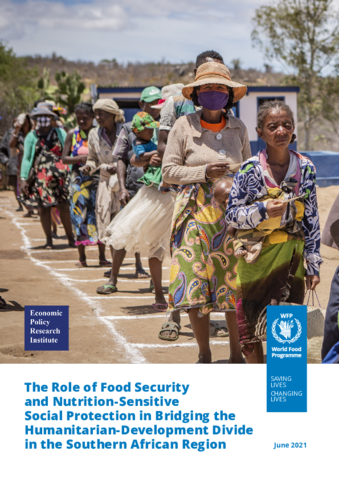
Over the last few years, countries in the Southern
African region have battled numerous shocks spanning
multiple dimensions– health, economic, social, and
climatic. While extreme weather conditions and their
impact on agri-based livelihoods have been compounding
structural vulnerabilities and chronically worsening
food security and nutrition, COVID-19 and the related
mitigation measures (lockdowns, border closures etc.)
have further pushed millions into food insecurity of
“crisis-level or higher.” This has demonstrated the
urgency of reinforcing investments in national social
protection systems where food security and nutrition
serve as the foundation. Using the COVID-19 experience
of several countries in the Southern Africa region, this
paper analyses the role of food security and nutrition
in social protection programming and in bridging the
humanitarian- development divide. In the process, it
answers the following key questions:
- How has COVID-19 compounded pre-existing vulnerabilities and affected the status of food security and nutrition in the Southern African region?
- To what extent have social protection responses to COVID-19 in the southern African region been responsive to food security and nutrition needs?
- Why should food security and nutrition be at the centre stage for effectiveness of social protection responses to crises?
- How can social protection be an effective platform to respond to the set of compounding covariant shocks affecting the region in a way that ensures that food security and nutrition are safeguarded and strengthened?



